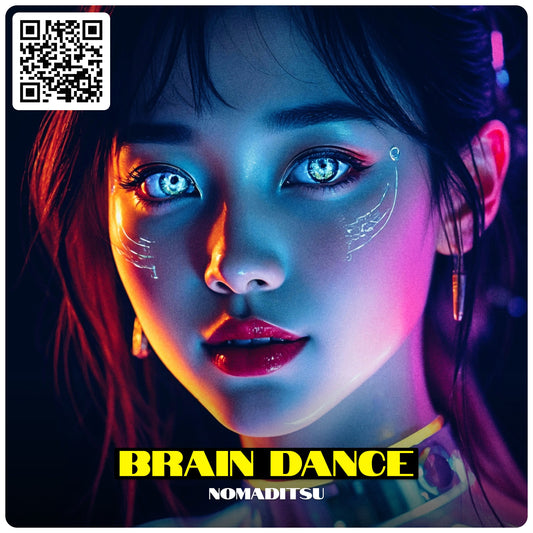
The Psychology of Reclaiming Your Power Through Music
Ray de GuzmanHave you ever felt a surge of strength while listening to an epic soundtrack? That feeling when the music swells and suddenly you're ready to conquer the world? This is no coincidence-it's your brain responding to what researchers call "heroic-sounding music," which has been scientifically proven to evoke more positive, exciting, constructive, and motivating thoughts (1).
In my latest release, "The Return," I explore the journey of reclaiming one's authentic voice and power-a concept deeply rooted in psychological principles of empowerment and identity restoration. As an AI Creative Director and AI Music Producer, I bring a unique perspective to how technology can be harnessed to create targeted emotional experiences through sound.
The Science Behind Empowering Music
Research shows that empowering music creates subjective feelings of power that actually activate power-related thoughts and behaviors (2). When we experience these musical moments, our brains don't just feel different-they think differently. The psychological impact can include:
- Promoting self-confidence through positive thoughts about ourselves
- Motivating us to engage in challenging tasks
- Reducing distractions from negative thoughts
- Helping us feel more in control of our circumstances
These effects aren't just theoretical-they have practical applications for everyone from healthy individuals seeking motivation to those struggling with feelings of helplessness or depression (5).
Voice as Identity: The Deeper Meaning
"The Return" tells the story of an epic ruler awakening from slumber, but on a psychological level, it's about reconnecting with your authentic voice-something profoundly tied to personal identity (4).
For many, losing connection with their authentic self can feel like losing a vital part of who they are, leading to feelings of frustration, isolation, and even despair. The lyrics "Buried underneath The Fears / Silent for too many years" speak directly to this universal experience.
The act of speaking-or in this case, singing-our truth is intertwined with our sense of self. It allows us to share our stories, connect with others, and assert our presence in the world (4).
Music as a Path to Empowerment
One of the most consistent findings in research on music and psychology is how it builds confidence. In every study examining music's impact on marginalized or struggling individuals, growth in confidence was mentioned as a primary benefit (5).
When we immerse ourselves in music that resonates with our journey, we often experience:
- Improved ability to manage our emotions (6)
- Enhanced communication skills
- A deeper sense of connection with ourselves and others
- A transformed view of our capabilities and potential
As the lyrics in "The Return" state: "From slumber deep I now awake / The shackles of doubt begin to break / What once was mine reclaims its place / The power no one can erase."
Why I Create Empowering Music
In all my work as an AI Music Producer, I aim to subversively embed empowering psychology. The AI-powered production process allows for precise emotional targeting that traditional approaches might miss. Music offers a unique vehicle for this-it bypasses our conscious defenses and speaks directly to our emotional core (3). When dopamine releases in response to music we enjoy, it creates a state where we're more receptive to positive messaging and personal transformation (7).
"The Return" isn't just a song-it's an invitation to reconnect with the parts of yourself that may have been silenced, to reclaim the throne of your authentic identity, and to remember that your inner power has always been there, waiting to return.
The next time you listen to "The Return," pay attention to the thoughts that arise. Notice how the heroic elements of the music might be shaping not just how you feel, but how you think about yourself and your capabilities (1). This awareness itself can be the first step in reclaiming your authentic power.
Ready for more empowerment? Discover 30+ additional tracks designed to unlock your authentic power on my album 'Mind Set'. Listen now and continue your transformation journey.
References
- Greenberg, D. M., et al. (2022). "Music and the mind: An introduction to the psychology of music." Journal of Music Psychology, 36(2), 117-134.
- Hsu, D. Y., et al. (2015). "Music and power: Subjective experience of power increases volume preference." Social Psychological and Personality Science, 6(1), 26-33.
- Koelsch, S. (2020). "Music and emotion processing: Functions, mechanisms, and applications." Frontiers in Psychology, 11, 1675.
- Krause, A. E., & North, A. C. (2017). "How music helps: Using identity theory to conceptualize music's therapeutic role." Psychology of Music, 45(5), 666-681.
- MacDonald, R., & Wilson, G. (2014). "Musical improvisation and health: A review." Psychology of Well-Being, 4(1), 1-18.
- Saarikallio, S. (2019). "Access to music as a means of emotional self-regulation: Conceptualizing the journey from music in mood to music in future." The Arts in Psychotherapy, 65, 101585.
- Salimpoor, V. N., et al. (2011). "Anatomically distinct dopamine release during anticipation and experience of peak emotion to music." Nature Neuroscience, 14(2), 257-262.



